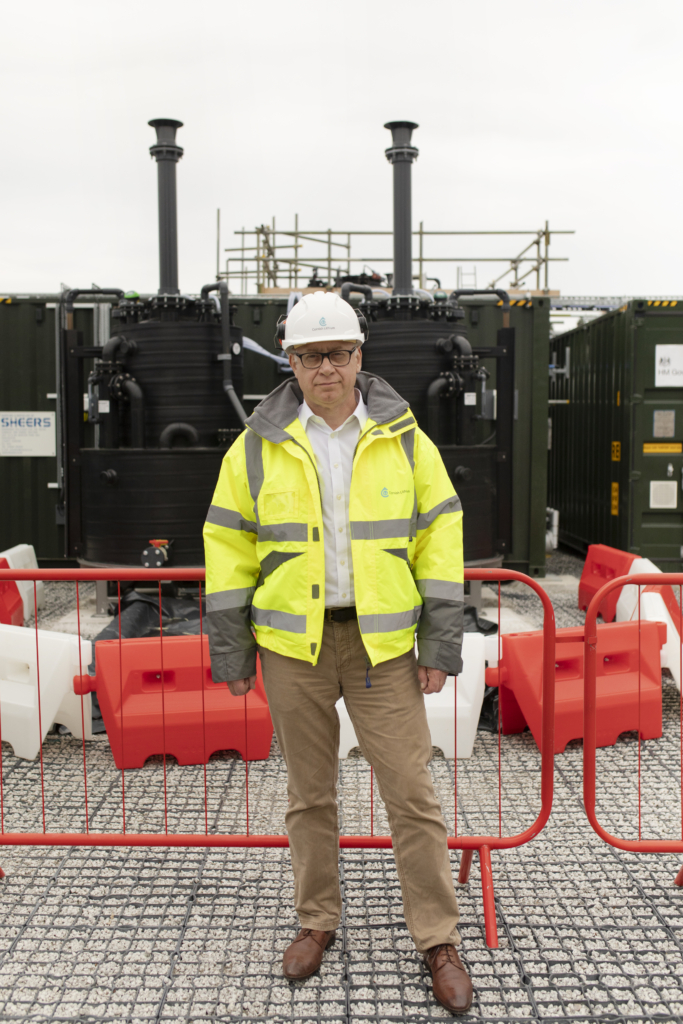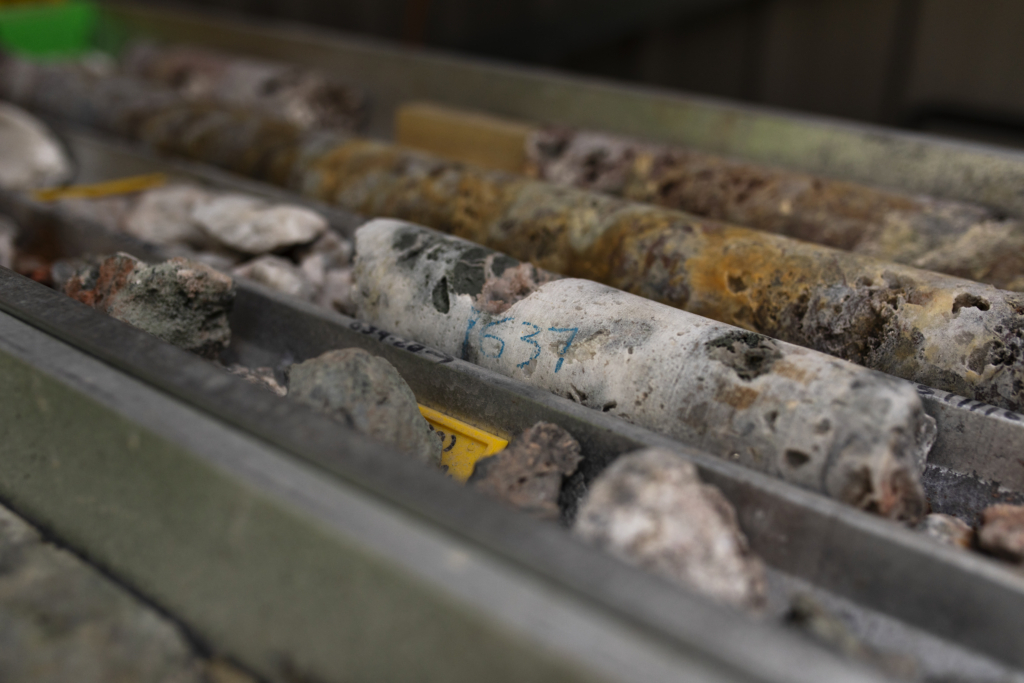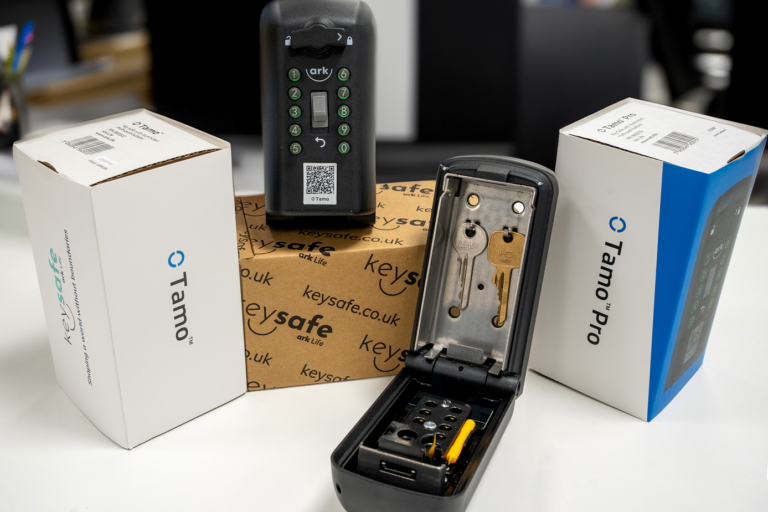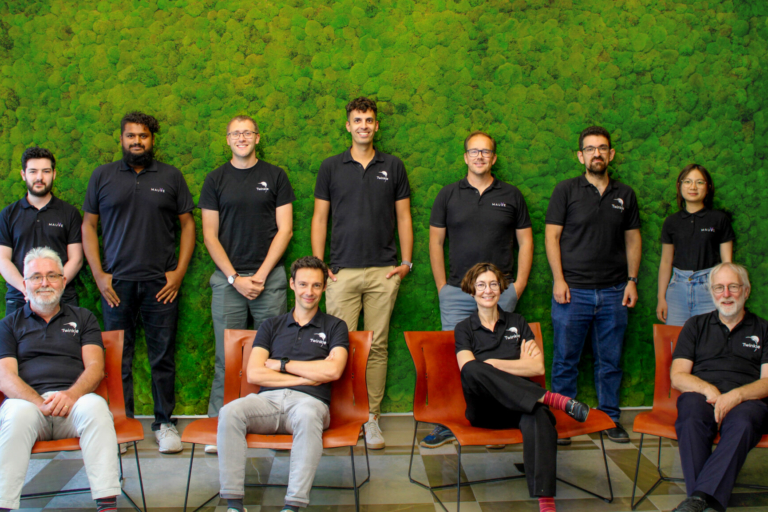Founder of Cornish Lithium on how mining could boost the South West economy and power the UK's electronic future

In the 18th century, Cornwall was the mining centre of the world. While the region had been mined for more than 2,000 years, the industrial revolution saw thousands of tonnes of tin, copper, china clay, silver, zinc - even arsenic extracted out of the ground.
But when it became cheaper to import tin and copper than dig it out of the ground, the mining industry pretty much shuddered to a halt. The last Cornish tin mine, South Crofty, finally closed in 1998.
But could Cornwall be entering a glorious new mining age? Mining engineer, innovator and former investment banker Jeremy Wrathall thinks so, thanks to rising demand for critical minerals such as lithium, nickel and cobalt to power our green revolution.
There is also a commitment by the region's biggest businesses and local government to make the South West a world-leading energy cluster, and the Tata Group, owner of Jaguar Land Rover, has already committed to building a huge new Gigafactory in Somerset.
Investors are also increasingly excited by the potential of the lithium industry in the region and this summer, Cornish Lithium secured £53 million from institutional investors led by the UK Infrastructure Bank alongside one of the world’s biggest private equity investors, The Energy & Minerals Group (EMG) and leading technology metals investor TechMet. The company also recently closed additional funding of £5.1 million via a crowdfund to existing and new retail investors, demonstrating huge positive sentiment towards the idea of building a new critical minerals industry in Cornwall.
Mining lithium responsibly is no fairy tale
Lithium is an essential element in batteries for electric vehicles, but most is mined thousands of miles away in Australia, China and South America using significant amounts of water and energy, polluting the air and water with chemicals and heavy metals.
But what if lithium could be mined in this country in a way that's really green? It's not a fairy tale, says Jeremy, who studied at the renowned Camborne School of Mines before his banking career.
After graduating as a mining engineer, Jeremy spent four years in the South African gold mines before returning to home to become an investment banker, latterly becoming Head of Mining at Investec covering the mining and metals sector globally.
And with everyone talking about net zero, he began to wonder where all the critical minerals would come from to deliver the world’s green ambitions.
"Just a few years ago I was forecasting compound annual growth rate of around 13 per cent for minerals such as lithium. It’s now substantially more than that."
As he walked to work one cold, wet February morning in 2016 he remembered a conversation he’d had with a friend who was trying to re-open a tin mine in Cornwall.
"He’d said to me – we’ve got everything in Cornwall – tin, copper, iridium – we've even got lithium.
Lithium – the element that everyone in the nascent EV industry wanted.
"That evening, I googled and found just a few historic references to lithium in Cornwall, but because I knew the region well, I could see there were records of lithium in water between South Crofty in the far west, and United Mines much further east and that this could be something of major significance."
He'd picked up on a geological phenomenon and after discussing it with his wife (helpfully, a mining geologist), he began researching it in more detail. It was clear they were on to something. Jeremy began securing lithium mineral rights agreements from rather bemused local landowners (who were yet to appreciate what might be under their properties).
In early 2017 he resigned his investment banking job and set up Cornish Lithium, securing enough agreements with mineral rights owners to raise around £2 million for further exploration, including from experienced mining executives who shared his belief that lithium could be mined in Cornwall.
Bringing mining back to Cornwall
Jeremy’s unique background in finance and mining, and the years spent visiting scientists and mines all over the world which produced every sort of commodity, gave him the credibility investors look for.
And when his ambitions caught the imagination of the media ("bringing mining back to Cornwall"), they attracted a number of further offers to invest - not from romantics harking back to Cornish tin mine heritage, but from experienced mining investors who know an opportunity when they see it.
By the time Cornish Lithium had successfully undertaken four rounds of crowd funding, the business came to the attention of TechMet which, in 2021, agreed Cornish Lithium’s first substantial investment package of £18 million.
Lithium isn't a rare element, but there are few locations across the globe where it's commercially exploitable. While Argentina has it in abundance, it’s located under the desert far away from power, with poor transport access and in a country which has major economic and political challenges. It's also found in Chile, which has just nationalised the industry. There is a lot in Australia but it’s in a mineral called spodumene, from which it’s very difficult to extract, and can only be done by fossil fuel roasting, making extraction not exactly green.

Cornish Lithium is focused on innovative extraction methods to produce clean lithium, with low water and energy usage.
In Cornwall, lithium can be extracted from two sources – water, which is what Jeremy research initially established –and rock. Cornish Lithium is working on extracting the element from both, following a phone call from a former member of the British Geological Survey (BGS) who mentioned that there was a lithium mine during WW2 at a place called Trelavour Downs.
And the signs are that extracting lithium from water is likely to be very commercially exploitable. "We think Cornish brine is unique in terms of its chemical composition." said Jeremy.
"We drill a hole to a depth of about two thousand metres. Water is sucked up to the surface and put through - for want of a more scientific description - a giant water filter cartridge containing small granules which the lithium adheres to. Once that cartridge is charged up, we wash the lithium off, and as the water comes up hot – about 70-80 degrees centigrade – the company can sell the excess heat, achieving a totally green process."
The other bit of good news is that everything can be accomplished using renewable power given the abundant availability of wind and solar energy in Cornwall.
Repurposing an old mine means no major infrastructure works
The other way of extracting lithium, from rock, is already possible using standard industry techniques combined with Lepidico’s low carbon processing technology, and Cornish Lithium has taken on a former china clay mine near St Austell to do so. This mine was the site of the former lithium mine during WW2 that was hinted at by the retired member of the BGS in 2017.
"China clay was mined down to an average depth of about 20 metres before hitting hard granite, and it’s the granite we want," said Jeremy. "We are effectively repurposing a brownfield mine site and have also secured exclusive use of a brownfield former china-clay processing site within one kilometre of the pit.
This has the huge advantage of an existing railway connection together with other essential services already connected. Renewable power is available in the area from wind and solar, together with the close proximity of Cornwall’s main grid substation.
"The latest £53 million investment will fund existing budgets until June 2025 and will allow us to complete the Feasibility Study which will feed into construction of the Trelavour Mine,"he added. "Our new and existing funders have committed an optional further amount of $210 million dollars, which they requested because of their confidence in the project following forensic due diligence."
Current plans are that the lithium mine at Trelavour will be in production by late 2026 or early 2027.

"We’re all learning things we didn’t know before"
Cornish Lithium currently employs over 70 people full time, and is set to increase.
Unlike in many other industries, Jeremy hasn’t found recruitment a big challenge. "Around 20 per cent or so of our staff are former Camborne School of Mines geologists who otherwise may have gone abroad.
And Britain produces a lot of chemical engineers, who are excited to be working on a new branch of chemical engineering – getting lithium out of water.
"We love hiring young people because they’re open to new ideas. This is mining in a way I wasn’t taught. We’re all learning things we didn’t know before, and it’s great."
Jeremy is also on the Critical Minerals Committee which gives him a voice at the heart of government.
"Government has begun to recognise the importance of what we are doing, particularly after the USA’s Inflation Reduction Act (IRA) which risks excluding the UK and Europe from USA supply chains, because it encourages firms to invest directly in America in order to qualify for subsidies."
The EU has already responded with its Critical Raw Minerals Act and now the UK is finally stepping up.
"The agreement announced earlier this year between Sunak and Biden, where Britain agreed to collaborate on the IRA, was concrete evidence of the government waking up to the issue," added Jeremy.
"The government has welcomed our latest investment which supports the UK’s domestic mining of lithium, helping our transition towards net zero and boosting local and regional economic growth."
And the market is there. According to the government’s Advanced Propulsion Centre, the UK will need 90,000 tonnes of lithium LCE (lithium carbonate equivalent) by 2030 to meet the government’s targets for electric car adoption.
"Every tonne of lithium that we produce here is one that we don’t have to import. We expect to be able to produce eight to 10 thousand tonnes of lithium hydroxide from our hard rock project, and possibly around the same from our brine projects."
Does Jeremy regret leaving a comfortable investment banking career behind and heading back to the wild west?
"It has been incredibly hard," he admits. "If it was easy, everyone would do it and I’ve had many sleepless nights, especially in the last nine months, but any entrepreneur will tell you the same. All this said, it has been very much worth it as I feel we are building an exciting new industry for Cornwall and for the UK economy as a whole."














